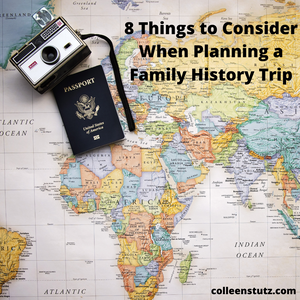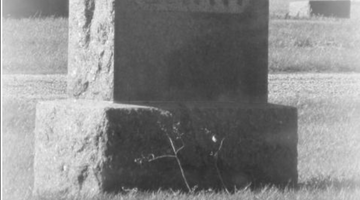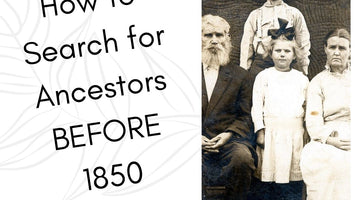Are you thinking of visiting an ancestor's homeland and learn more about your ancestry heritage? Are you wanting to find the house they lived in, or another piece of history that they contributed to? Here are 8 things to consider when planning your family history research trip:
1. Prepare. You will benefit from your trip so much more if you prepare before you go. Decide what you want to see, contact any family members in the area before you get there, and plan out your time. Make sure you know the hours of all of the places you want to go. Nothing is worse than getting to your destination, only to find the building you wanted to go in is closed.
2. Bring a travel companion. Two heads are better than one, especially when you're trying to remember all of the names, dates and places that you're researching.
3. Find lodging close to your destination. Even if you need to stay in a shabby little motel, it will be better than driving an hour each way, every day, to your destination.
4. Make appointments. Consider making an appointment to meet with an archivist, genealogist, librarian, church official, or historian who can help you make the most of your visit.
5. Meet new family members. One of my favorite things about going on family history trips, is meeting distant cousins. They always have new information I've never seen about my ancestors, and they love to chat and create friendships. Don't be afraid to dig a little to find someone who is related to you in the area you'll be visiting.
6. Don't skip the cemeteries. With FindAGrave and other online helps, many tombstones are online. But if you're making a trip to where your ancestors lived, don't skip visiting the cemetery where your ancestor is buried. You can learn a lot from where they are buried, and who they are buried near. You may find some new family connections you didn't know about, or discover what happened to a daughter by seeing her married name on the tombstone next to your ancestor's. Cemeteries often have records that you can obtain from the office or local sexton. Many times these records contain a lot more information than what's on the tombstone.
7. Locate where your ancestors lived. There are a few ways to do this, depending on how long ago your ancestors lived in their city. GoogleEarth is a great app that lets you enter an address, and see the house from the street level. This will give you a great idea of what the house looks like so you can find it when you get there. If your ancestor lived a long time ago, you can look at plat maps online or in libraries/archives. They show the last name of the land owners, and help you pinpoint where the land was. You can compare it to a modern day map and go visit the land. If they are not on a plat map, you can look up the land records of when they bought land, which will have the description of the land included. You may need to ask for help to pinpoint exactly where the land is, depending on the location and time frame. Once you find where your ancestors lived, it will help you get a sense of how close they were to others, to the local church, to the town, etc. It is such a neat experience to see exactly where an ancestor walked, worked, and lived.
8. Record everything. You'll think that you will remember the stories you hear or the things you see, but you won't. Trust me. Take pictures of everything, and take notes about everything. Years later you will be glad to have those details written down. You can share what you learned with your family members or on your online tree, and many can benefit.
These are just some general things to consider when planning a family history trip.





